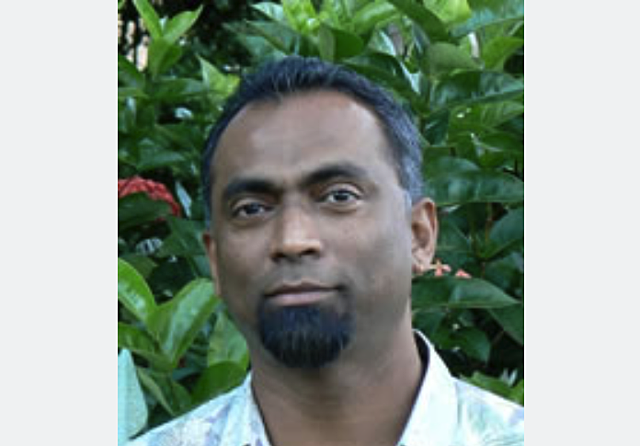< Meeting
Astyanax International Meeting for Cavefish
Organized by Erik Duboue, Ph.D., Nicolas Rohner, Ph.D., Johanna Kowalko, Ph.D., and Alex Keene, Ph.D.

Feb 28- Mar 022024
Fort Lauderdale, FL
This meeting has occurred.
The Astyanax International Meeting for Cavefish is a biennial gathering that brings together researchers, enthusiasts, and professionals from around the world who share a passion for cavefish studies and other adaptations to extreme environments. 2024 will mark the 8th year for the event.
It aims to highlight the latest research findings, foster collaborations, and facilitate knowledge exchange in this fascinating field of study. With a mix of keynote addresses, panel discussions, and interactive sessions, the event offers an enriching platform for participants to delve deep into the mysteries of cave-adapted fishes and beyond.
Keynote Speaker
Athula Wikramanayake, Ph.D.

Athula Wikramanayake, Ph.D.
Professor and Chair, Department of Biology, University of Miami, Coral Gables, FL
Athula Wikramanayake, Ph.D., is an evolutionary developmental biologist whose laboratory at the University of Miami uses embryological, molecular, genomic and phylogenetic approaches to investigate the evolution of pattern formation in metazoan embryos. A major focus of his laboratory is to investigate the molecular basis for the evolution, specification and patterning of the animal-vegetal (AV) axis. The AV axis is a cytoplasmic/cytoarchitectural polarity that is present in most animal eggs, and is specified maternally by largely unknown mechanisms. This maternally deposited developmental information is used during embryogenesis to specify the primary germ layers.
The Wikramanayake Lab uses embryos of sea urchins, which are basal deuterostomes from the phylum Echinodermata, as a model system for studies on AV axis specification and patterning. In parallel with these studies in sea urchins, the lab use's this information in a phylogenetic context to gain insight into the mechanisms that may have led to the evolution of the AV axis and the evolution of the germ layers. For these comparative studies his team uses the new genomic cnidarian model system, Nematostella vectensis.
Cnidarians are thought to be the sister group to the bilaterians, making Nematostella an excellent model system for gaining insight into the conserved developmental mechanisms shared by the last common ancestor to bilaterians and cnidarians. This phylogenetic approach has yielded important insight into the evolutionarily conserved role of the Wnt signaling pathway in early pattern formation in animal embryos. Additionally, these simple marine invertebrate embryos are proving to be excellent model systems for studying the regulation and evolution of the Wnt pathway, a pathway of considerable biomedical significance.
Athula Wikramanayake, Ph.D.Why attend the meeting?
Attendees will have the unique opportunity to learn about the latest advancements and discoveries in cavefish research. They will also be able to network with leading experts in the field, fostering collaborations and potentially opening doors to new research opportunities.
Who can attend?
This meeting is designed for researchers, academicians, students, and enthusiasts in the broader field of adaptation to new environments, especially those with a keen interest in cave-adapted animals. Registration is open to anyone interested in expanding their knowledge and networking within this specialized community. A poster session will be held for young researchers to showcase their findings. There will be workshops catering to both beginners and advanced participants.
For more information head to the cavefin website.
How do I submit an abstract?
Registrants interested in submitting an abstract can learn more by clicking the link below. The deadline for oral presentations is December 31st.
Late abstract submission (poster only) will end January 31st.
Registration has closed
Learn More
Meeting venue
This biennial meeting will be in person in Fort Lauderdale, Florida at the B Ocean Resort.
50 rooms have been reserved at the hotel on a first come first serve basis. You can reserve one here. It is in your best interest to book your stay as soon as possible. After the room blocks have sold, you will have to book directly with the hotel.

Registration investment:
Graduate Students: $450 (no fees)
Postdoctoral Researchers/Technicians: $600 (no fees)
Principal Investigators/Professionals: $800 (no fees)
Vendor/Supporter: $950 (plus fees)
The prices above reflect early bird registration, available until Dec. 8, 2023.
Conference Schedule
The final schedule for the 8th Astyanax International Meeting for Cavefish is now available!
See the schedule here